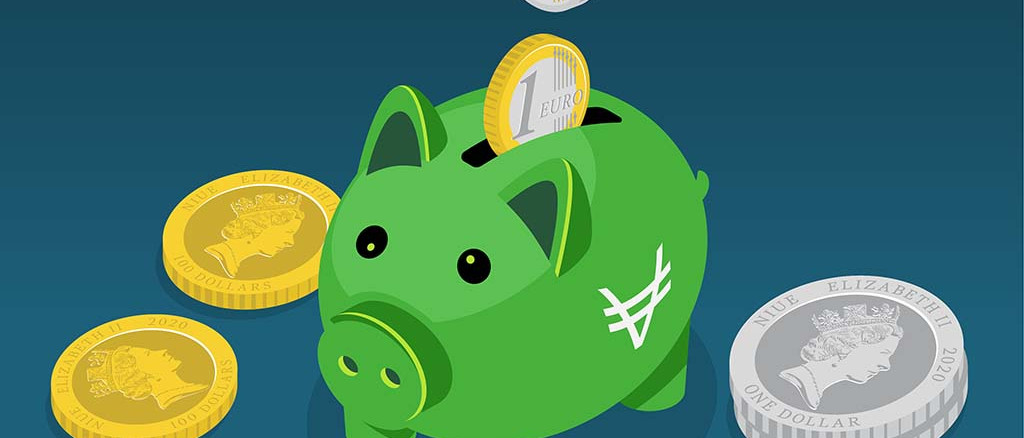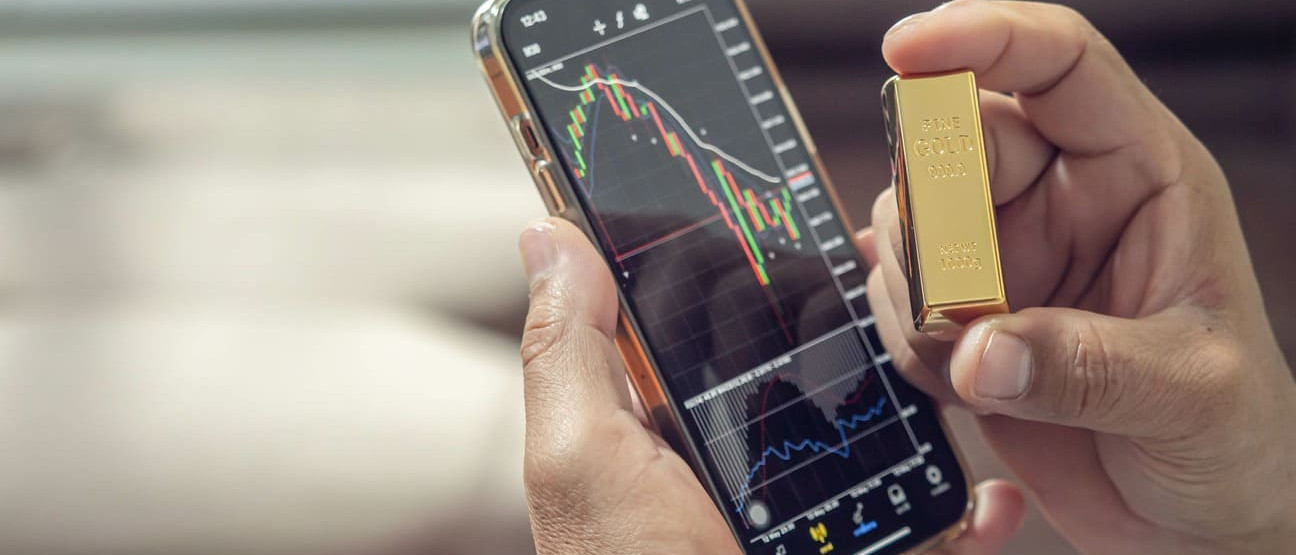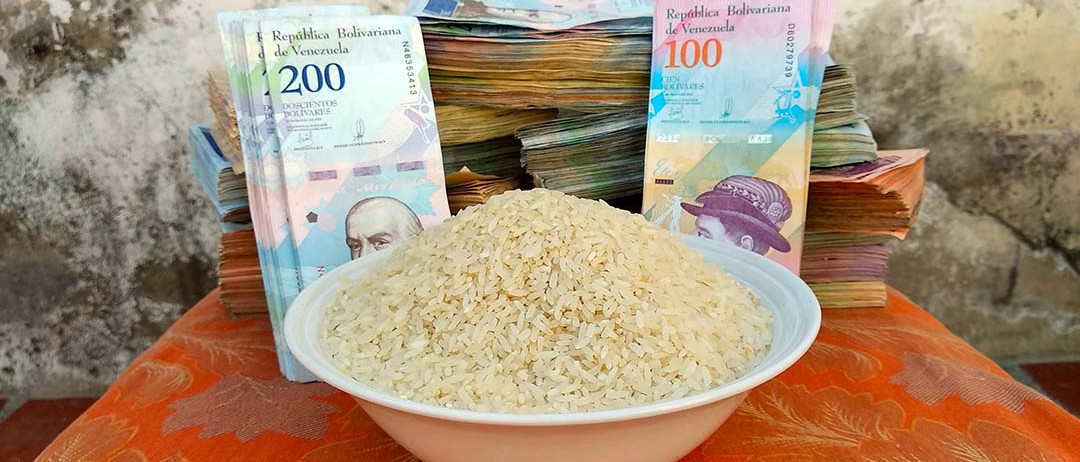At the beginning of March 2021, a systematic comparison – or you could even say a competition – between gold and bitcoin was carried out by a father and son from an American millionaire family within their respective communities on social media, and the results were particularly revealing. Whilst Peter Schiff, a well-known businessman in the United States, stated a strong preference for gold and staunchly rejected bitcoin, his own son decided to switch his entire investment portfolio into the famous and much-maligned cryptocurrency. His father then publicly threatened to disinherit his foolhardy offspring, fearing that he would squander away his father’s carefully acquired wealth.
Behind the story, which some might see as the umpteenth telling of the battle between old and young, we can discern the collision of two economic models, but are they actually so incompatible? And beyond their obvious differences, can we not imagine how they might complement each other?
The erratic bitcoin versus timeless gold
If we were to identify a single, fundamental difference between gold and bitcoin, their very nature seems the most obvious: gold is physical and almost eternal, while bitcoin is virtual and ephemeral. Quite apart from their economic credentials (bitcoin is a speculative asset, whilst gold is not), contrasting them reveals much more pragmatic and practical features.
Gold is a tangible asset “par excellence”, which has offered the best store of value over time for millennia, whilst bitcoin, as we know, has no physical foundations to underwrite its value. This is what makes it extremely volatile, to the extent that its value could be reduced to nothing just through the influence of certain people, as was recently the case with Elon Musk, whilst gold will always be worth something, if only because of its concrete existence. Unlike bitcoin, which is nothing more than a series of electronic signals at the mercy of any major technical outage, gold simply cannot disappear.
Availability and universal recognition are what distinguish gold from bitcoin
Another difference is that gold can be stored and even hoarded, whilst bitcoin cannot: only the private key that makes transfers between accounts possible is protected. And with all due respect to those who claim that the IT protocols are inviolable, it is still a vulnerability that does not apply to precious metals. Of course, it’s possible for criminals to get their hands on physical gold, or that certain “treasures” disappear, but these are limited amounts because gold is heavy and takes up space. It’s worth remembering that France is one of the countries that holds the most gold in its central bank vaults, with the equivalent of 115 billion euros – that’s 2,500 tonnes!
In terms of bitcoin, however, there have been countless computer hacks, each resulting in the disappearance of several million dollars, plus accounts rendered inaccessible due to lost keys, corrupt data, damaged or reformatted hard disks, etc. According to the Chainalysis platform, cybersecurity and cryptocurrency specialists, out of 18.5 million bitcoins that have been issued, over 3.5 million have been lost or blocked. This is the equivalent of 210 billion dollars based on current prices!
However, with its ability to concentrate the maximum amount of value within the minimum amount of space (if we can consider computer memory as a form of space) bitcoin could be seen to have an advantage. With gold, the difference between exchanging 100 euros and 100 million euros is huge when you consider the sheer weight of metal that needs to be moved: 2 grams in the first case, and 2 tonnes in the second. This problem doesn’t exist with bitcoin and there is absolutely no need to meet in person or organise any kind of transport whatever the value of the trade, from the smallest to the largest.
However, gold is way ahead of the game when it comes to recognition and acceptability. Using bitcoin remains a relatively secretive process despite the currency’s huge growth over the last 5 years, whilst gold not only has an intrinsic value that is recognised anywhere in the world, but more importantly it can be traded without needing any particular technology or intermediary.
Gold and bitcoin: both fighting the same battle
What unites holders of gold and bitcoin is the loss of confidence in monetary policy over the decades, which has placed debt as the primary factor in wealth creation. Numerous financial crises have sullied the worldwide economy since the end of the 1980s, and these have only gone to illustrate (or even demonstrate) how fragile the modern banking system can be, thus reinforcing the general public’s lack of trust in traditional currencies.
This has given rise to two main approaches: one that favours security, with traditional safe havens to stabilise the value of the capital, the other that maximises potential gains outside traditional mechanisms using the very latest tools for alternative speculation.
Nowadays, we know that if there were to be a stock market crash, gold would retain or even increase its intrinsic value: we saw this in the 2020 crisis following the coronavirus pandemic, when the worldwide markets crashed whilst gold was breaking records. In the same way, bitcoin seems to have become a kind of capital valuation instrument whose ultra-speculative nature appeals to those who are looking for potential profits that can no longer be obtained from traditional investments. Of course, this is not suitable for those who are averse to extreme risks.
Rarity and authenticity are the features that make gold and bitcoin “honest currencies”
Another common feature is rarity. Gold is extracted from an ore that is naturally finite on planet Earth. Whilst it’s not the rarest element, the yellow metal is sparsely distributed on the Earth’s crust, unlike other more common metals, such as iron and aluminium for example. It’s this rarity that contributes to its high value, as well as the sometimes significant cost of extraction. Bitcoin is also rare, but unlike gold, we know precisely how many units of the cryptocurrency will be created in total: 21 million. This is actually the main reason for its initial valuation. Today, around 90% of the planned number of bitcoins have been created and, unlike other currencies, it is not possible to manufacture them more quickly or create more when needed.
As currencies, gold and bitcoin now share the unusual quality of representing an instrument of trading and buying power. In the case of gold, over many centuries, and until recently, currency coins were themselves made from precious metals. These days, some people mourn the fact that currency, whether fiat or representative, no longer has an intrinsic value. However, a new card payment system emerged a few years ago, facilitated by the FinTech firm VeraCash, enabling euros to be converted into gold coins or bullion bars, thus providing a guaranteed value without links to a central bank or dependency on financial markets.
More recently, and still in its infancy, the monetisation of bitcoin is similar to that of gold in a number of ways. For example, the fact that it can be easily dissociated from international currencies and is therefore not influenced by national politics or the state of the financial markets.
But it’s really around the question of authenticity where bitcoin and gold converge. Neither of these instruments can be counterfeited or copied without the fraudulent activity being detected immediately. For centuries, we have been able to detect even the slightest alterations to, or attempts to blend, the precious metal and it’s currently impossible to trade in counterfeit gold with anyone who has access to checking mechanisms that are relatively simple to put in place. As far as bitcoin goes, its computerised nature prevents units from even existing if they don’t exactly comply with the constraints stipulated by the algorithm. And the transaction ledger (the blockchain) reinforces this authenticity by providing a full audit history of each bitcoin since its creation. In this respect, bitcoin and gold both represent what we would call “honest currencies“.
Buying gold and bitcoin for a winning strategy?
In summary, whilst we may find it difficult to consider gold and bitcoin to be two sides of the same coin – one being an immutable physical ancestor and the other, its disruptive virtual heir – we shouldn’t necessarily set them in opposition to each other. Each has its pros and cons, so perhaps a good strategy for investment would be to combine the pros from both so that the cons can be minimised.
So whilst remaining prudently within the recommended limits for diversification, it might be interesting to retain gold for its reserve of value and stability over time and at the same time, acquire some bitcoin whose rarity and growing interest even within the establishment give it a monetary value that is not susceptible to the turmoil that has marred the financial markets for over 20 years.
By doing this, you can adopt a hybrid investment profile, dynamic and cautious at the same time, making use of both the power of cryptocurrencies whose high level of volatility promises profit but at high risk of losing capital, and the security of gold, where the value of your financial assets can at least be partially retained in case of a sudden loss of value of your more unstable assets.
Multi-entrepreneur, auteur et consultant depuis plus de vingt-cinq ans dans le domaine de la communication stratégique, il a plusieurs fois travaillé pour le compte d'entreprises financières dont il décrypte aujourd'hui les coulisses et les mécanismes économiques de base à l'intention du plus grand nombre.
You might be interested in
4 May 2023
How much should I spend on gold and silver?
Diversifying is about minimising the risk of capital losses that are always possible on certain products, but also and above all, to preserve the…
28 April 2023
2023, a good year for gold prices?
It's prediction time. At VeraCash, we prefer facts to predictions or magic. So to tell you about the gold price in 2023, we're going to have to tell…
21 February 2023
Could inflation be both the problem and the solution?
Rising prices are undoubtedly the indicator that speaks loudest to the most people. Depending on geographic location and position in the economic…


